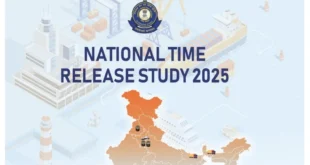The Modi government’s reservation gambit is neither sound policy nor smart politics
India presents a classic case of proto-politics. Nothing that is institutional has an appeal and the insatiable clamour for quick surprises is a constant. While on Sunday at a Bharatiya Janata Party (BJP) event as part of its Dalit outreach, a world record was attempted by cooking 5,000 kg of ‘khichdi’, on Monday the Central government announced 10% reservation for ‘economic backwards’ to reach out to upper castes. The announcement is clearly aimed at the 2019 general election. However, it needs to be seen whether playing the reservation card in its inverted form would be a ‘zero sum game’ or a ‘win-win’ situation for the BJP?
In the last decade, India has been witnessing the interplay of the agrarian crisis and demands for reservation by dominant peasant castes, Jats in the north, Marathas and Patidars in the west, and Kappus in the south. The resultant political crisis leads to absurd complexities whereby reservation is sought and promised as the remedy for agrarian distress. Similarly, the BJP’s recent electoral reverses in three Hindi heartland States signalled that a section of the upper castes, the core support base of the party, had drifted away. This seems to have necessitated the proposed policy-cum-political measure of reserving 10% seats for them to woo them back. However, here too the party may be drawing the wrong inference.
A significant section of the Other Backward Classes (OBCs) and Dalits accompanied upper caste voters in moving away from the BJP in Madhya Pradesh, Chhattisgarh and Rajasthan. While, anti-reservation forums like SAPAKS, or Samanya Picchdaa Evam Alpsankhyak Samaj, had campaigned against the BJP on account of controversies related to the Scheduled Castes and Scheduled Tribes (Prevention of Atrocities) Act, in reality they merely deflected the root cause of the anger due to agrarian and rural distress. The fact that the BJP performed better than the Congress in the Baghelkhand region of Madhya Pradesh, the core region of SAPAKS activity, indicates this.
Subaltern, Hindutva, Bahujan
The key to Prime Minister Narendra Modi’s 2014 electoral success lay in meticulously fusing the social support bases of two antagonistic discourses of 1990s emanating from Mandal and Mandir politics. By the early 1990s, Mandal evolved into a Bahujan experiment wherein the ‘Other’ were the upper castes, while the Hindutva discourse attempted to forge a solid social support base by giving thick political representation to subaltern Hindus to constitute Muslims as the common ‘Other’. It succeeded vis-à-vis Bahujan discourse on account of the two-fold internal social contradictions: between Dalits and OBCs on the one hand, and between dominant OBCs and lower OBCs on the other.
The proposed Bill flies in the face of constitutional provisions and court verdicts. Even if a constitutional amendment inserts ‘economic backwardness’ as the basis for reservation besides existing social and educational backwardness in Article 15(4), it cannot make a persuasive case to breach the 50% cap for reservations, as the constitutional provision is clear that the scale of reservation under Article 16(4) has to be minority in nature.
This would mean that either the proposed Bill would be nullified, or the 10% reservation would have to be accommodated in the existing 50% cap. Either way it would be a dead-end for the BJP.
Reservation is neither an instrument of poverty-eradication, nor does it have the scale to cope with the agrarian and other economic crises afflicting India today. At a time when a deep institutional response is warranted, going for the easy and lazy measure of earmarking reservation amounts to policy escapism. The trend of making public policies and institutional response subservient to electoral exigencies as a norm is tantamount to treating India as a proto-state. And on a pragmatic note, elections are fought and won by appealing to fence-sitters rather than hypnotising the ‘core’ again and again, as the BJP now seems to be doing.
Sajjan Kumar is a political analyst. He is associated with Peoples Pulse, a research organisation specialising in fieldwork-based political study
Source : https://www.thehindu.com/todays-paper/tp-opinion/staggering-backwards/article25945299.ece
 Chinmaya IAS Academy – Current Affairs Chinmaya IAS Academy – Current Affairs
Chinmaya IAS Academy – Current Affairs Chinmaya IAS Academy – Current Affairs


